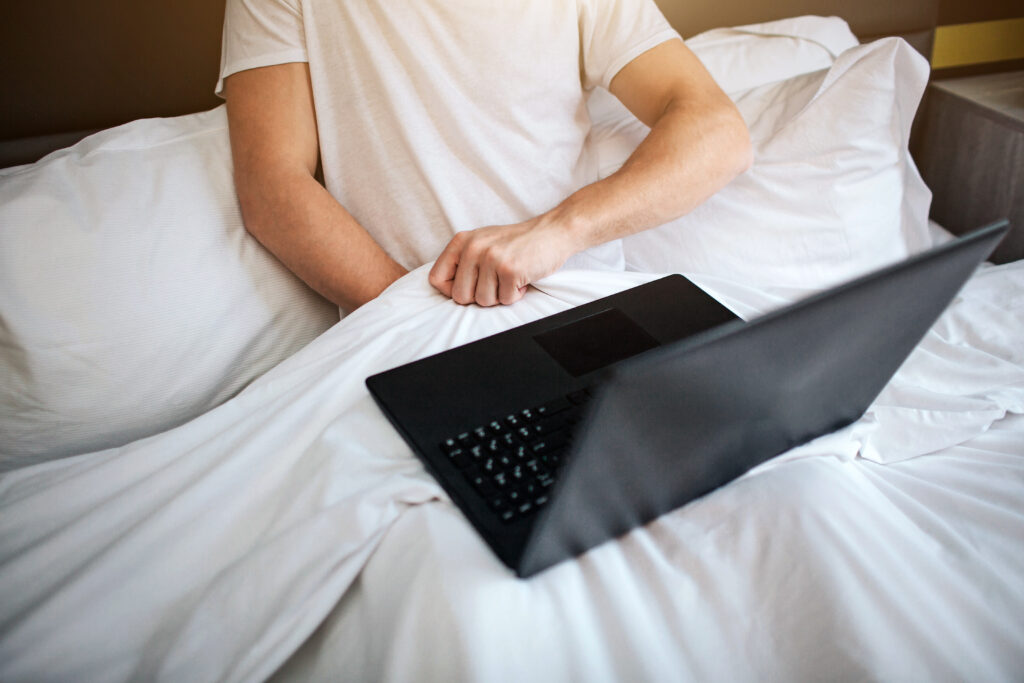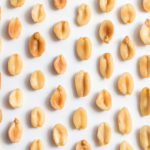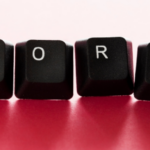Pornography — in today’s digital age, it’s everywhere.
Gone are the days of VHS tapes and glad-wrapped magazines at the top shelf of the newsagents, porn is now easily accessible on your phone, laptop and tablet — anywhere, anytime.
The internet and modern technology have changed the way all of us consume, receive and share content, and sexually explicit material is certainly no different.
But just how many men watch pornography? While it’s hard to pinpoint exact numbers, the short answer is — a lot. In 2021, the Australian Government’s seventh funded national survey of Australian secondary students and sexual health, which surveyed almost 7,000 students aged 14-18, found 95.5% of young Australians had viewed pornography. And the average age for viewing porn was 13.6.
Other research has unveiled similar figures. A 2017 study involving almost 20,000 people aged 16-69 revealed most men (84%) had looked at pornographic material, with women at 54%.
So, there’s no doubt a significant number of men consume porn to some degree.
Is it ‘bad’ to watch pornography?
Is pornography use an issue? Not necessarily — unless you have a moral or religious objection to sexually explicit material, porn shouldn’t be considered ‘bad’ or ‘wrong’. Many individuals, and couples, enjoy a healthy relationship with pornography — experiencing sexual pleasure is a good thing, and porn can help some people experience sexual pleasure with their partner, or alone.
But the ease of access to porn these days makes it easier for people to consume too much, says psychologist and Australian Association of Psychologists Director Mark Baxter.
“It’s not good or bad,” he says. “But (these days) you’ve got at your fingertips a resource that the human sexual drive has been craving and desiring from the start of time … all of a sudden it can come into your lounge room on your phone. There can be issues with that.”

What happens if you watch too much porn
In 2016, the Australian Institute of Family Studies reviewed the available evidence about the possible effects of pornography on children and young people and the messages porn generates about gender, equality and sexuality.
The psychology of addiction
While most people don’t let their porn consumption get out of hand, sometimes it can lead to problems, including addiction.
Baxter says just like other addictions, the overconsumption of pornography is complex but often revolves around the hormone dopamine.
“Ever since the internet has become more and more accessible on phones, the danger of addiction goes up. (Much like) gambling on phones; the danger of addiction goes up (when there is more access),” he says.
“It seems there are certain things that are naturally addictive that have a kind of a dopamine-chasing component, (like) alcohol, smoking, gambling, porn, sometimes sex, other drugs. But the common characteristic is wanting more, a chasing component.
“And sometimes it’s not so much the activity itself, but it’s often the thoughts about the activity, the preparation for chasing it down, the promise that is going to happen.
“But not everybody is addicted to everything; it’s pretty rare. And most people have their poison, so to speak. So, someone who might be addicted to gambling might be totally fine with alcohol, and might not have a problem with cigarettes, for example.”
Signs that your porn use might be an issue
Baxter says there are tell-tale signs of porn use becoming a problem.
The first step is recognising you might have an issue, which can be a problem because Baxter says many men are unwilling admit it.
“(Porn addiction) is really underreported — I think there’s probably a lot of shame around it. Porn is so (easy to access), but overuse or problematic use is not a conversation that’s held very easily amongst mates, amongst partners and things like that,” he says.
“The characteristics of it being problematic are normally around people using it too much (with the time spent) eating into their day. They’re just spending way too much time (doing it).
“Or they’re doing it in risky places — in a work setting, when they’re supposed to be on a Zoom call, in the bathroom when their partner’s outside in the bedroom and they’re not supposed to be. They’re taking risks.”
“And the other area is probably where it starts to get in the road of their sexual life with their partner. People often find that as their porn use increases, their appetite or satisfaction with regular sexual life decreases.
“The main early warning signs are if a person feels out of control, and that goes for any addiction. So, they feel like they are a passenger and their (addiction) is driving and holding the steering wheel.”
Using porn as some sort of emotional escape from the pressures of life can also be a warning sign, Baxter says.
“Some of the other things people would notice is when they’re using porn to avoid difficult emotions — boredom, loneliness, stress, these sorts of things. It can be not just escapism but a complete avoidance of feelings of difficulty,” he says. “That’s a key warning sign.”
Signs of porn addiction
How to stop or reduce your porn use
Baxter said there were some ‘at home’ strategies men could use to tackle their pornography use, although there was no one-size-fits-all approach.
Some of Baxter’s suggestions included installing barriers to make it more difficult to access pornography, using positive distractions, mindfulness and practising ‘urge surfing’.
“(One technique is) to give a person obstacles or barriers to access (the pornography) — it might mean changing permissions on your phone, or not carrying your phone on you when you’re alone,” he says. “These are things that can give men a little bit more distance, or time to make a choice.
“Or you could use positive distraction … someone might be feeling like they’re having a compulsion coming up and they want to change that trajectory, so they go and do something that feels more positive and takes their attention away, like exercising.
“Mindfulness and meditation are interesting tools to use with addiction because it allows someone to, rather than avoid what’s going on or just distract themselves, notice what is happening inside them.”
Even for people who think mindfulness is a load of sh-t, I would say just be aware of what’s happening in your body. Just track it. What’s going on with your heart rate, are there any pressures in your body? It doesn’t have to be ‘new age’-style meditation or anything, just paying attention to your body and thoughts.”
He said ‘urge surfing’ was also something men could practise alone, or with a professional’s help.
“You might notice an excitement or anxiety building — stay with that. We talk about urge surfing, which is an ability to track an urge all the way up and down. That emotion or feeling might start at a one out of 10 and go all the way up to nine, which is a really strong urge. But if a person can sit with it and stay with it and observe it, that urge will eventually go away on its own.
“Most people think they have to complete the urge when they get that compulsion, but the urge is not permanent.
“If a person can do that enough over a number of weeks, the urges get smaller and smaller over time, and we can really retrain the brain by not following through on an urge.”

When — and why — to seek professional help
Sometimes experts are needed to help people in difficult situations, and porn addiction is no different.
Despite the ‘DIY’ treatments listed above, Baxter said in some cases, professional guidance was needed.
Firstly, he said men must be honest with themselves about why they were seeking treatment; many of Baxter’s patients visited him after being prompted by their partner, which could prevent any real progress.
“It’s a brave thing to do (seeking treatment),” he says. “But I’d ask people to think before they go to a professional ‘what am I trying to change here?’.
“I want to understand a person’s values, their motivations and why they want to change this behaviour. So, if their partner has sent them to me but they aren’t convinced that it’s a problem, you don’t often see good treatment outcomes.”
“I also want to normalise it a bit — talk about the dopamine system, talk about addictive processes. Then I want to know what their triggers are, and the setting events, which might be being home alone, or feeling bored. Then we can start to build towards behaviour change.
“The other thing I would say is we do need to screen for more serious historical setting events. There might have been sexual abuse, there might have been trauma, there might have been a person who introduced them to sexual material way before it was developmentally appropriate.
There might be more complicated historical events that happen. So, we do history taking and screen for those and if that’s the case, we might use more trauma specific approaches to help with that rather than the cognitive therapy stuff.”
Benefits of improving your relationship with porn
Baxter says winning a battle against pornography addiction can result in many psychological benefits.
“Most people, when they’re out of control with compulsions, they feel like they are getting carried away and that might come in a form of shame or guilt or unworthiness, or just feeling weak. It can feel really good to bring some order into an area of your life that feels out of your control,” he says.
“The sense of satisfaction, the internal pride … people feel a lot more at peace (because) they have overcome an obstacle or challenge. And they can apply all these skills to other areas, they get these crossover skills.
“And then if they’re in a relationship or they’re single and looking for relationship, there’s a huge impact in their ability to connect with intimacy and connect sexually to their partner or the potential partners. They regain their sexual desire, their sexual interest again for their partner and they get good feedback from their partner. And that feels good.”
Anyone worried about their pornography consumption and who wants professional help should first contact their GP to discuss their concerns.















